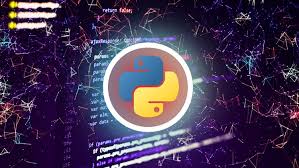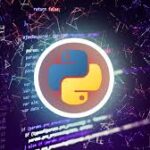Machine Learning Tutorial: Python-Based Predictive Analytics
SUMMARY
This comprehensive course is designed for anyone eager to dive into the world of machine learning using Python. Whether you’re a complete beginner or looking to expand your skills, this course will guide you from understanding Python fundamentals to applying machine learning techniques in real-world projects.
Key Learning Objectives:
- Master Python Fundamentals:
The course begins with an in-depth introduction to Python, focusing on essential programming concepts such as syntax, data structures (lists, dictionaries, and tuples), and control flow (loops and conditionals). A strong foundation in Python is crucial for working with machine learning libraries and algorithms. - Explore Machine Learning Concepts:
Gain an understanding of the core principles of machine learning, including the differences between supervised and unsupervised learning. You’ll explore various machine learning algorithms, such as:- Supervised learning (e.g., linear regression, logistic regression, decision trees)
- Unsupervised learning (e.g., clustering, dimensionality reduction)
- Work with Real-World Datasets:
Learn how to clean, preprocess, and transform real-world data. Data preparation is a crucial part of the machine learning process, as raw data often contains missing values, outliers, or irrelevant features. You’ll practice these techniques to ensure that your models receive clean and well-structured data, including feature engineering to create or select relevant features for model building. - Build Predictive Models:
The course teaches you how to build a variety of machine learning models using Python and popular libraries like scikit-learn. You’ll work with models like:- Linear regression for continuous data
- Logistic regression for binary classification
- Decision trees and random forests for structured data
- Neural networks for more complex tasks like image recognition or NLP
- Evaluate Model Performance:
Learn how to evaluate the performance of your models using metrics such as accuracy, precision, recall, F1-score, and confusion matrices. Understanding model evaluation is key to fine-tuning and improving the accuracy of your predictions. - Apply Machine Learning in Practice:
Discover how machine learning can be applied in real-world scenarios across different industries like finance, healthcare, and marketing. Learn how businesses use predictive models for tasks like risk assessment, customer segmentation, and demand forecasting.
Course Highlights:
- Hands-On Projects: Engage in practical exercises and real-world projects to solidify your learning and gain experience in building machine learning models.
- Step-by-Step Guidance: Follow clear explanations and coding examples that walk you through each concept, ensuring you understand both the theory and practice behind machine learning.
- Real-World Examples: Learn from case studies and examples drawn from various industries to see how machine learning is applied in practice.
- Expert Instruction: Learn from experienced professionals in the field who provide insights and tips from their own machine learning projects.
- Lifetime Access: Gain lifetime access to all course materials, enabling you to revisit the content whenever needed as you continue your learning journey.
Requirements:
This course requires no prior experience in Python or machine learning, making it ideal for beginners. The course is designed to build your knowledge step-by-step, starting from the basics and moving to more advanced concepts. By the end, you’ll be equipped with the skills to apply machine learning techniques to solve real-world problems
What you’ll learn
-
Gain a solid understanding of Python programming, including syntax, data structures, and control flow.
-
Explore the core principles and algorithms of machine learning, such as supervised and unsupervised learning.
-
Learn techniques for cleaning, preparing, and transforming data for machine learning models.
-
Discover methods for creating new features or selecting relevant features for model building.
Requirements
-
No experience required
Description
Are you eager to dive into the exciting world of machine learning and harness the power of Python? This comprehensive course is designed to guide you from a beginner to a proficient machine learning practitioner.
Key Learning Objectives:
- Master Python Fundamentals: Gain a solid understanding of Python programming, essential for machine learning.
- Explore Machine Learning Concepts: Learn the core principles and algorithms of machine learning, including supervised and unsupervised learning.
- Work with Real-World Datasets: Practice data cleaning, preprocessing, and feature engineering using real-world datasets.
- Build Predictive Models: Develop various machine learning models, such as linear regression, logistic regression, decision trees, random forests, and neural networks.
- Evaluate Model Performance: Learn to assess model accuracy, precision, recall, and other metrics.
- Apply Machine Learning in Practice: Discover real-world applications of machine learning in fields like finance, healthcare, and marketing.
Course Highlights:
- Hands-On Projects: Engage in practical exercises and projects to reinforce your learning.
- Step-by-Step Guidance: Follow clear explanations and coding examples.
- Real-World Examples: Explore real-world use cases of machine learning.
- Expert Instruction: Learn from experienced machine learning professionals.
- Lifetime Access: Enjoy unlimited access to course materials.










